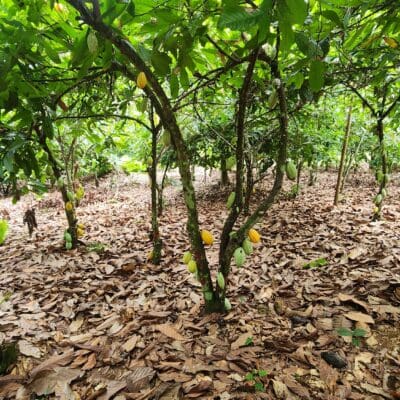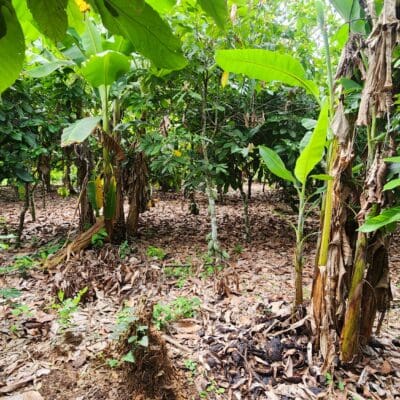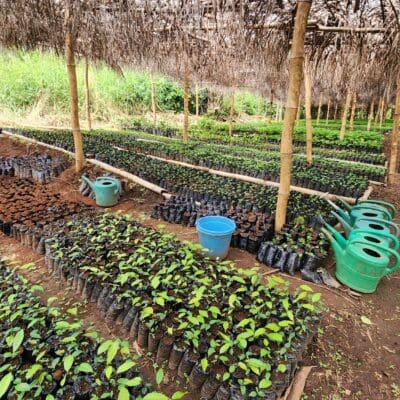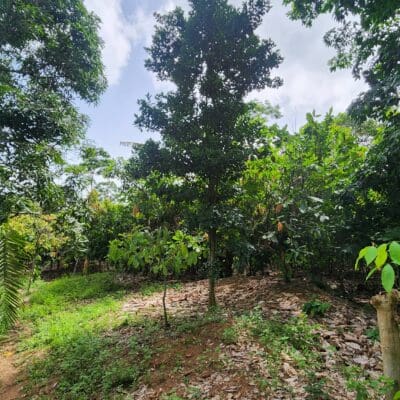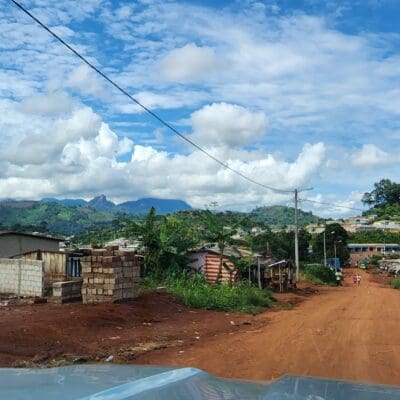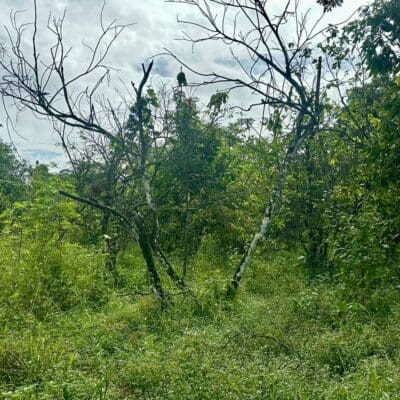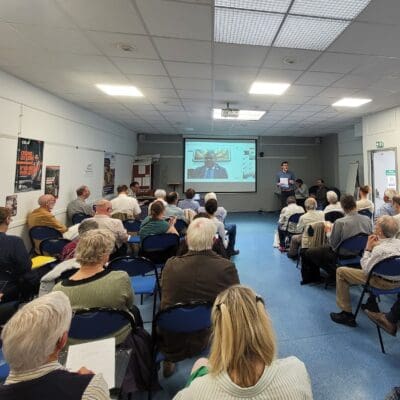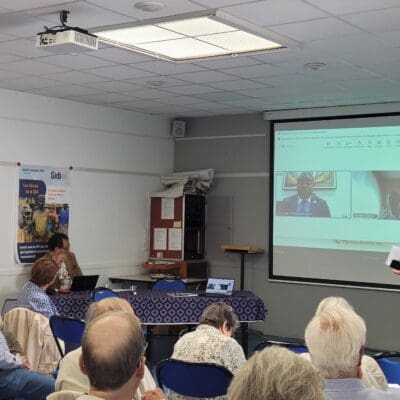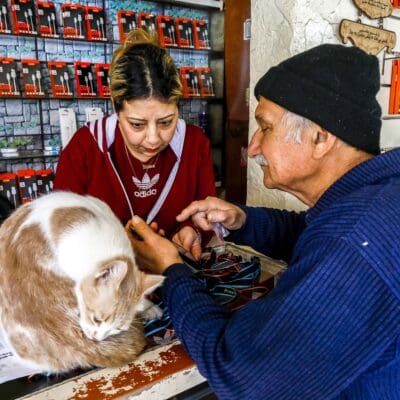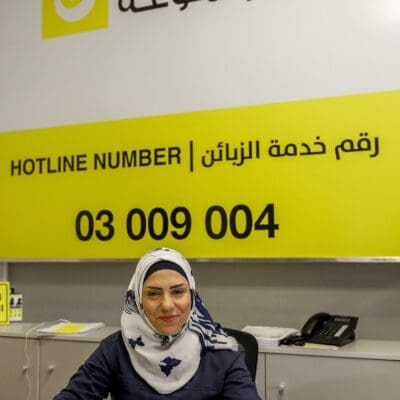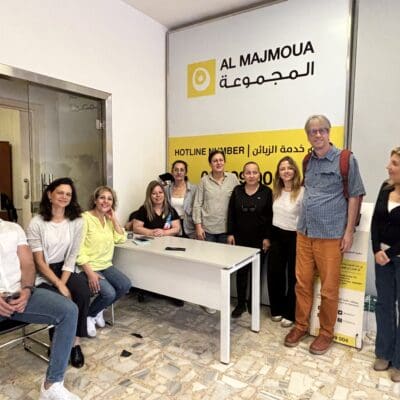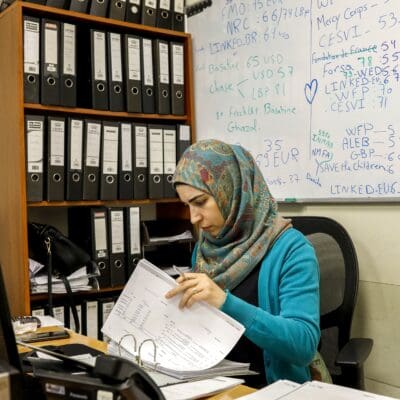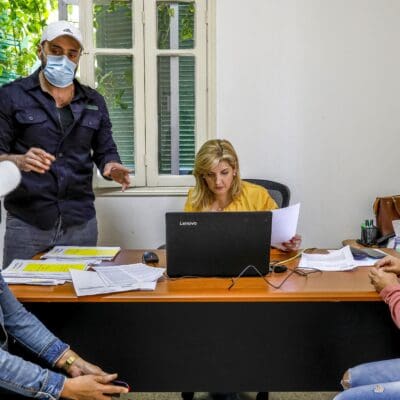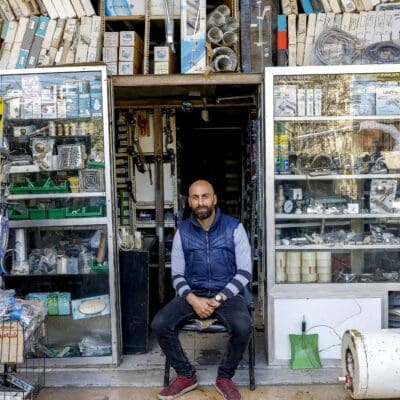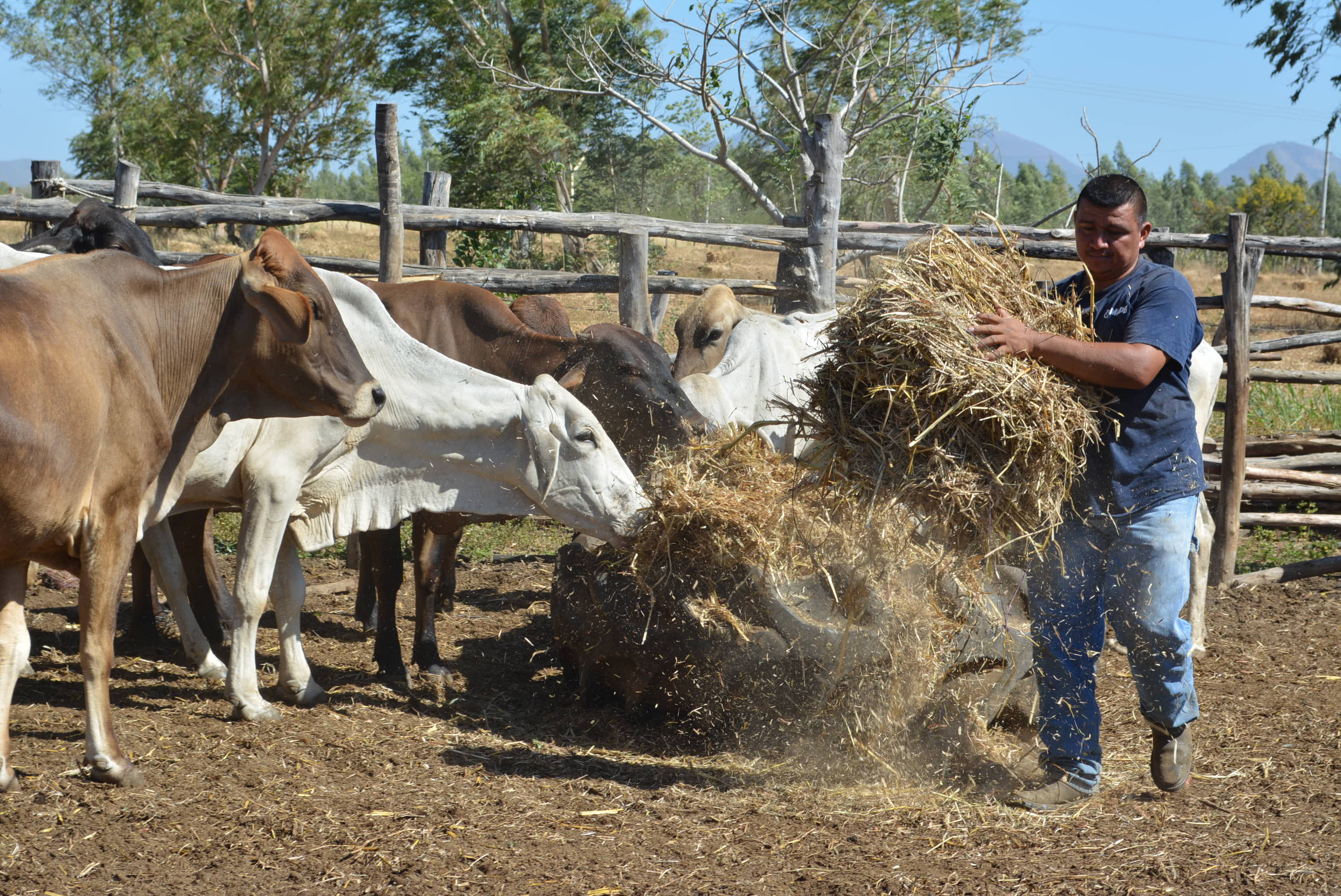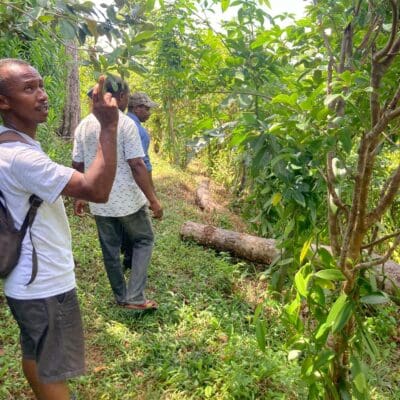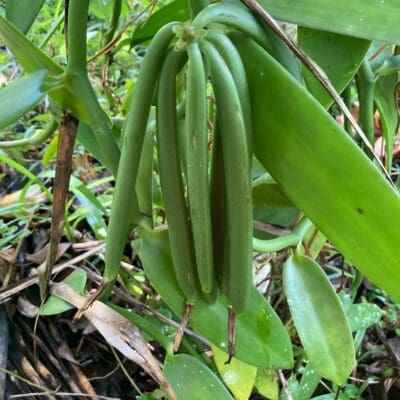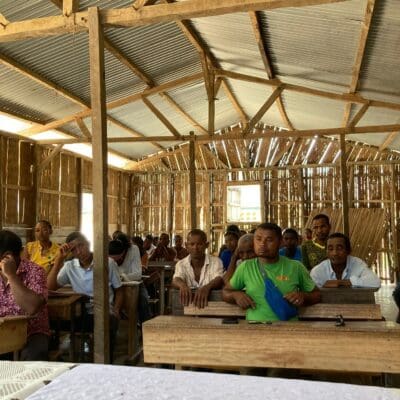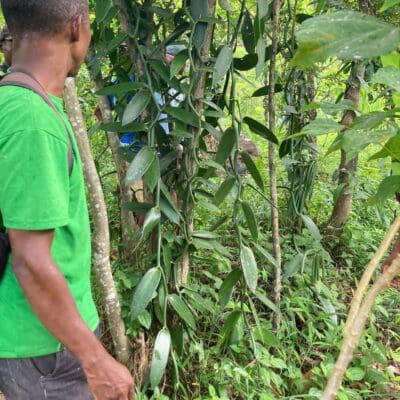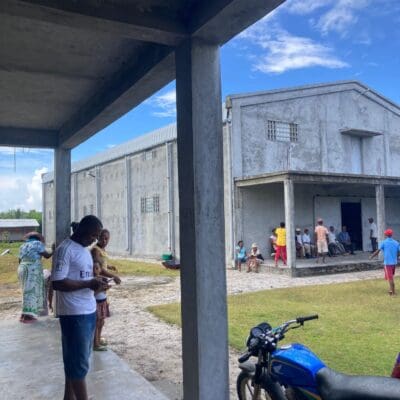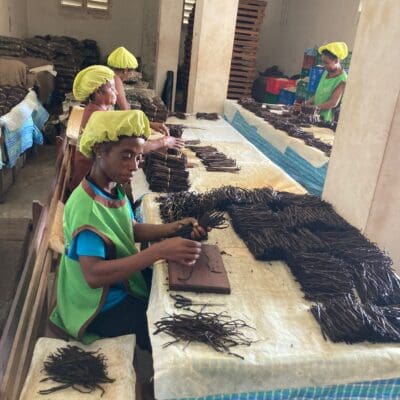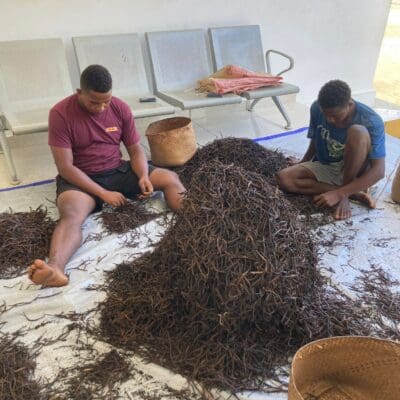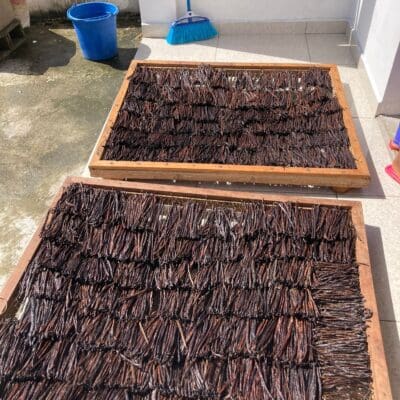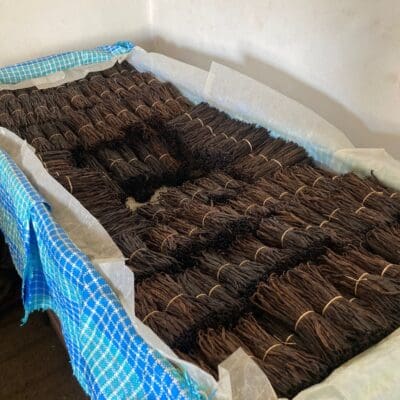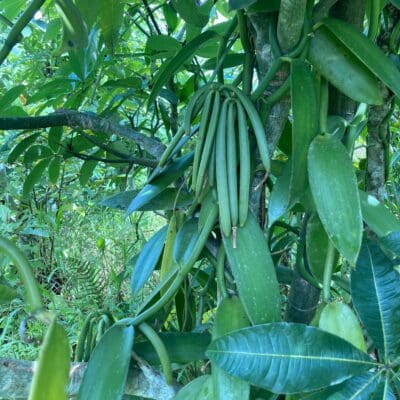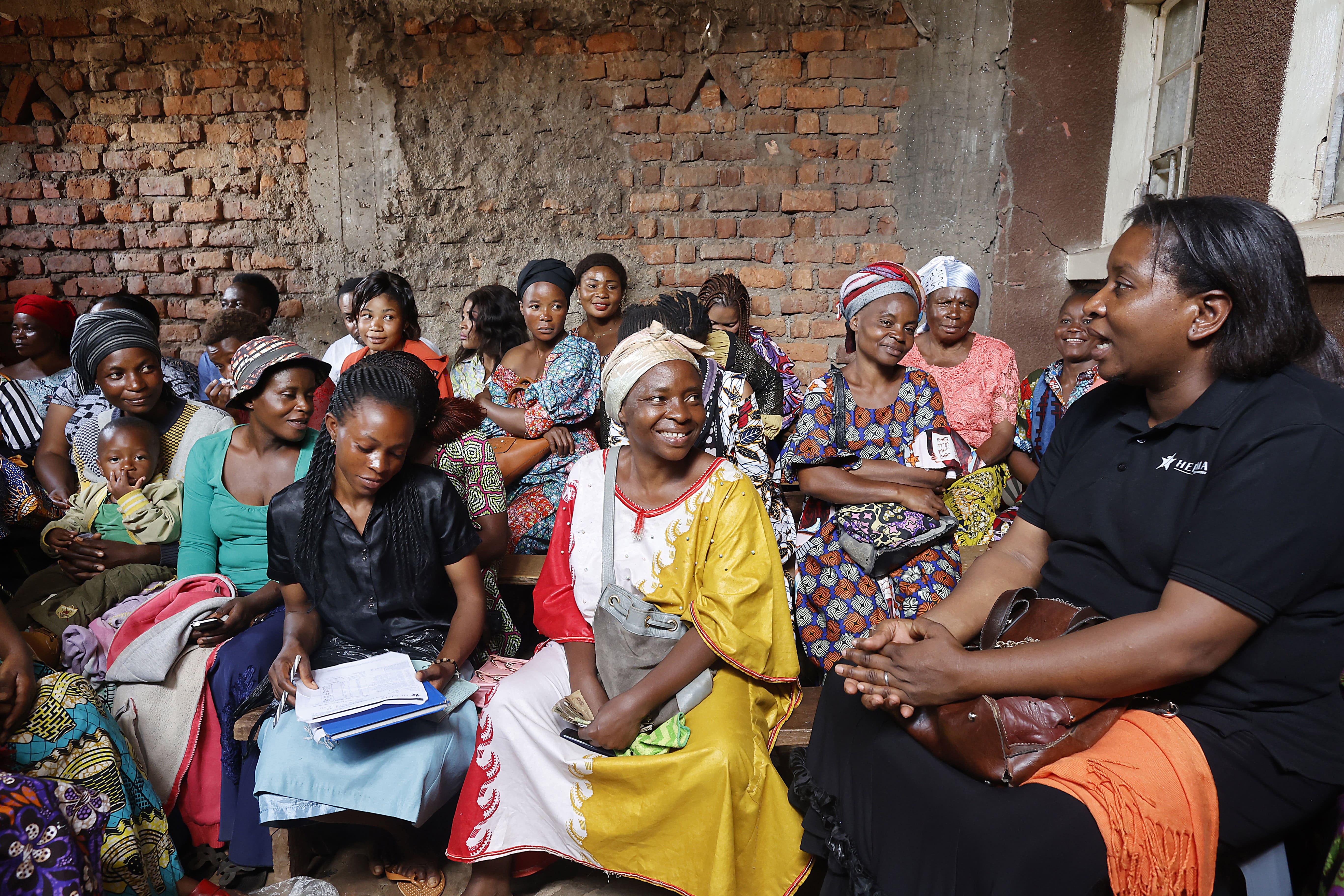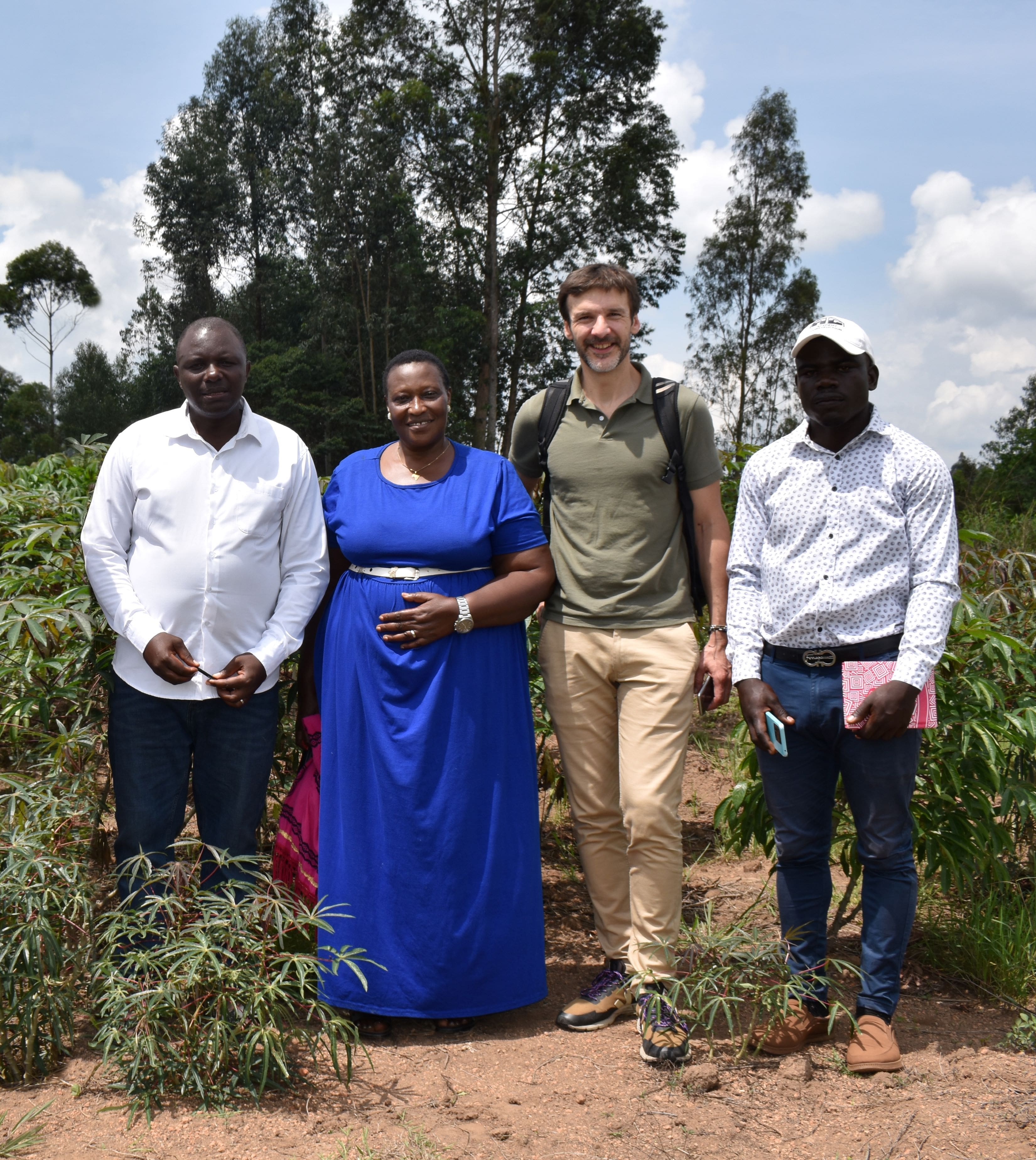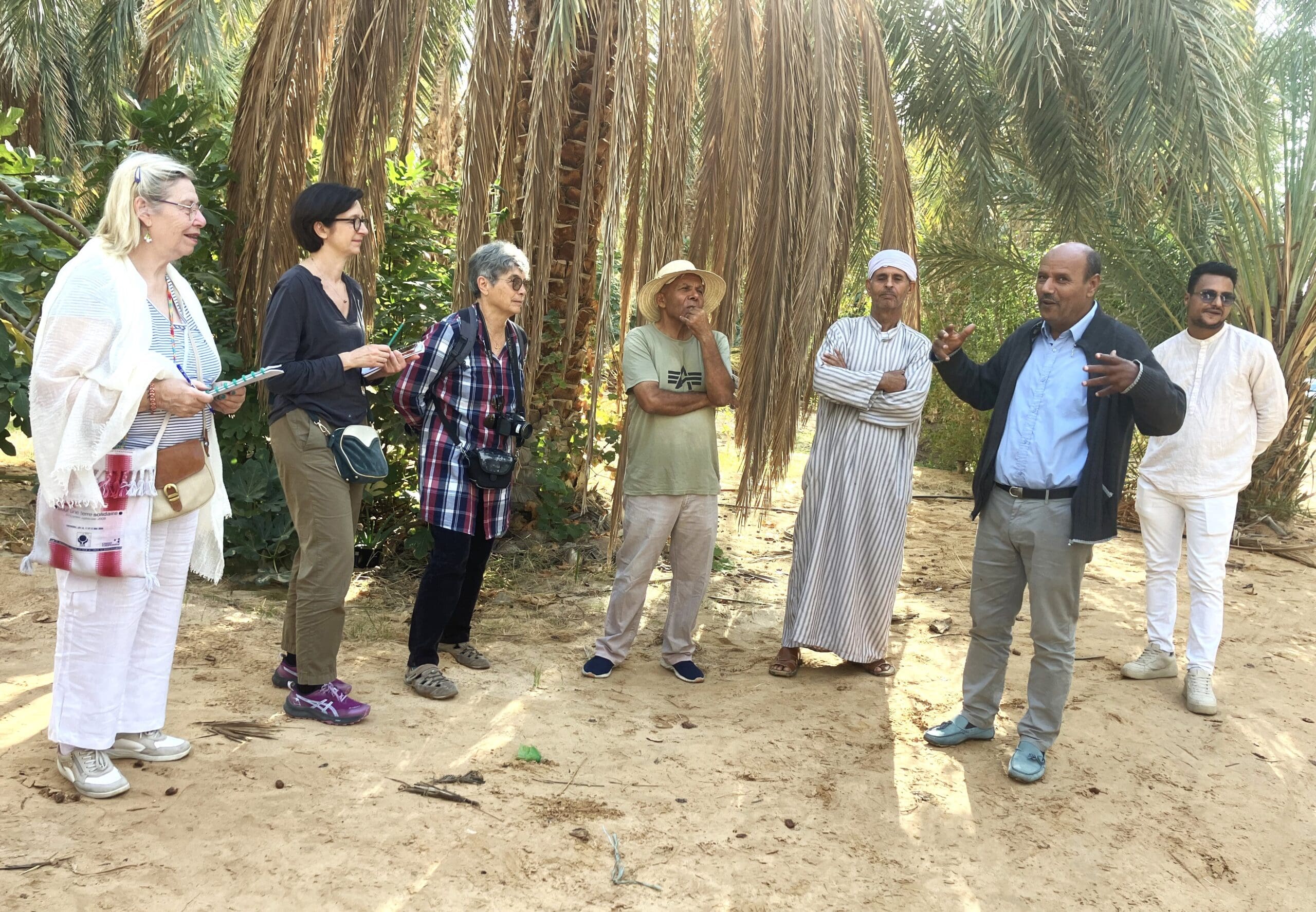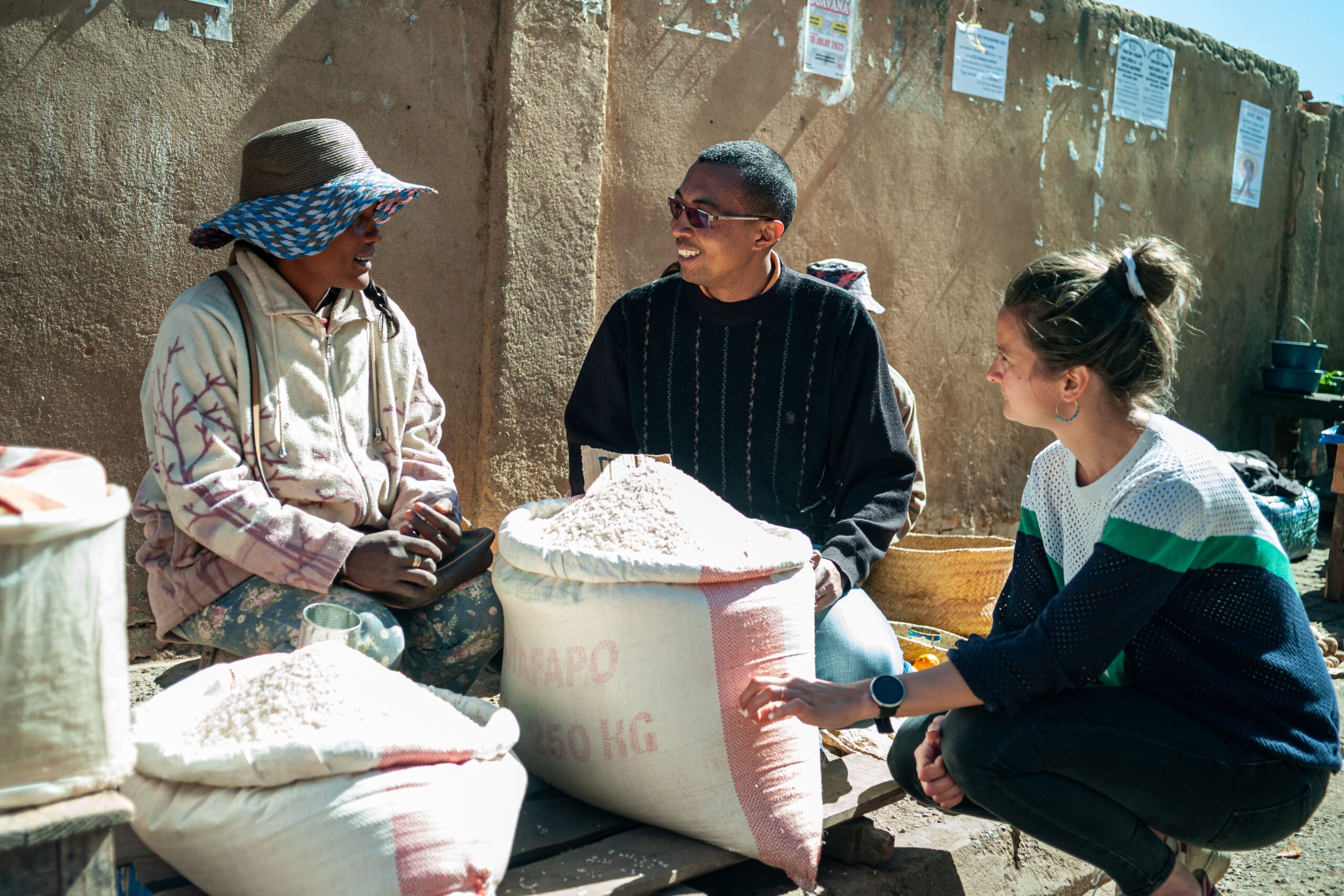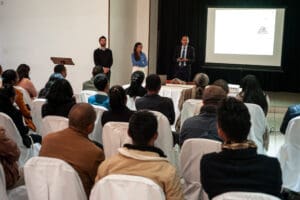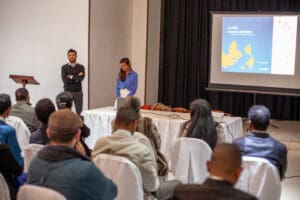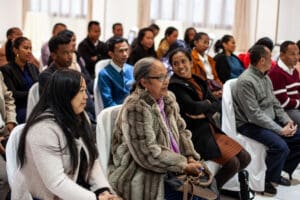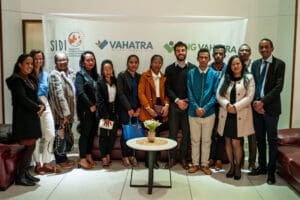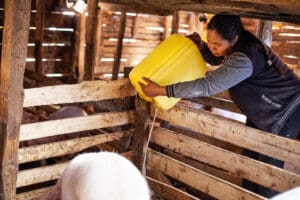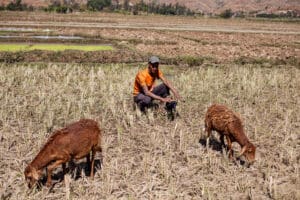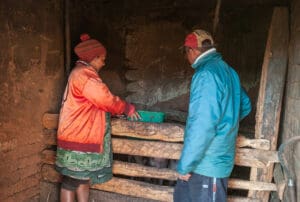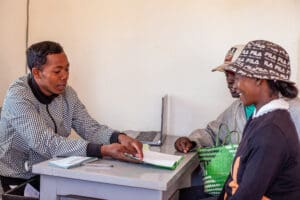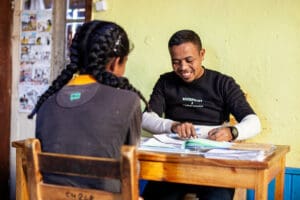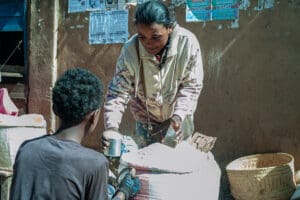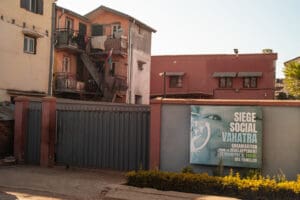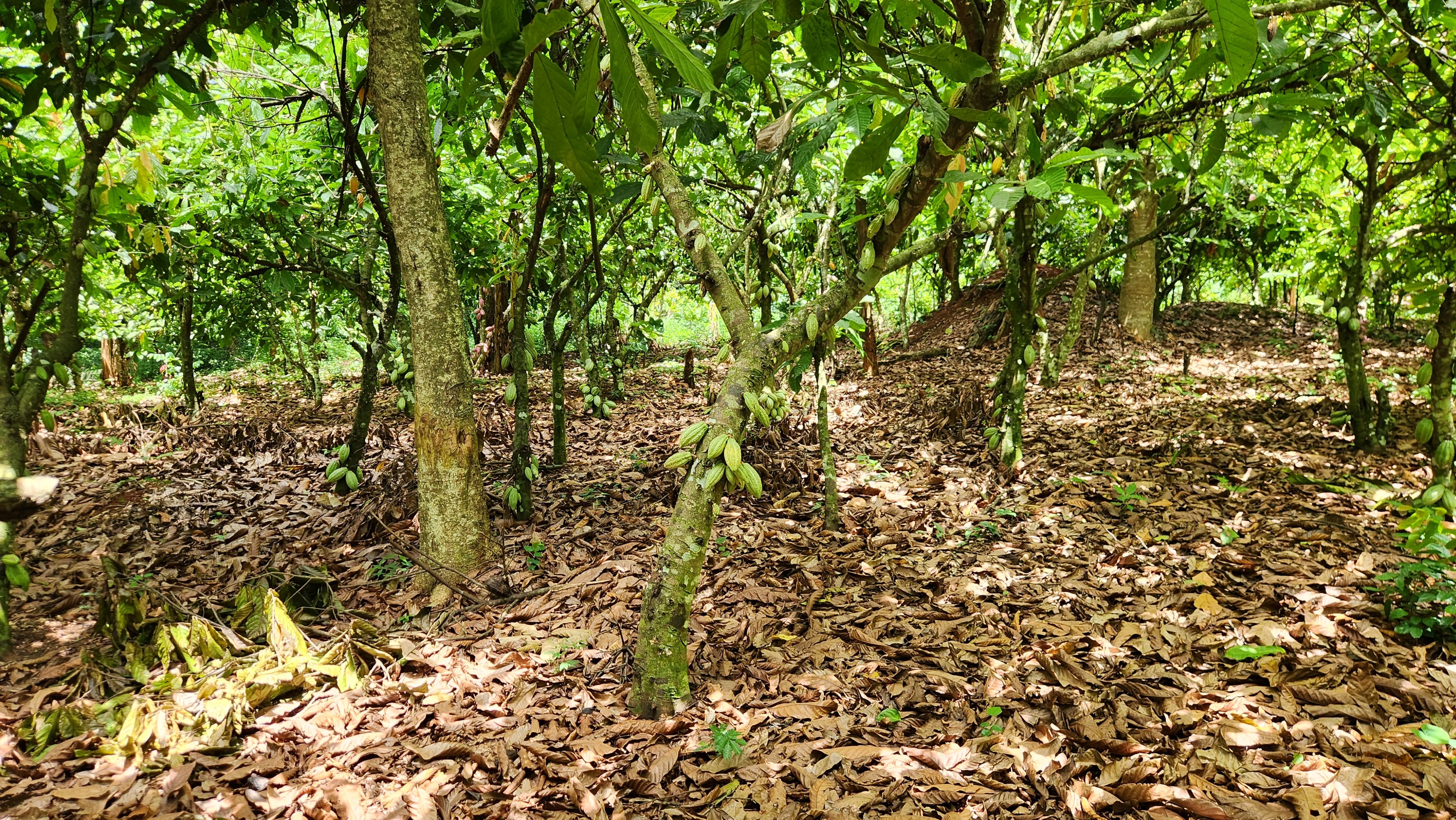
Have you noticed the soaring price of your favorite chocolate lately? Rising prices present a number of challenges for our partners involved in the cocoa sector in Ivory Coast, a country which alone accounts for almost 40% of the world’s cocoa production. Junior Tombe, investment officer, has just returned from a mission to shed some light on the situation.
Since September 2023, I have been in charge of monitoring SIDI’s partners in several West African countries. This is how I discovered Côte d’Ivoire, one of SIDI‘s intervention countries. The changes taking place in the country’s agricultural sector make each mission exciting.
This time, my mission concerned the cocoa sector. We mainly work with certified cooperatives that buy dried and fermented beans directly from producers and then resell them to exporters, often subsidiaries of major chocolate multinationals.
Today, Ivory Coast accounts for between 35 and 40% of the world’s cocoa production (over 50% with Ghana). Any change in production therefore has a direct impact on the world market.
Cocoa futures trading vs soaring world prices
An interesting feature of the Ivory Coast cocoa market is that it is highly regulated. The State, through the Conseil Café Cacao (CCC), sets the price of cocoa at the start of each season: from October 1st to March 31 of the following year for the long harvest, and from April 1st to September 30 for the small harvest. A price scale defines the selling price at all levels of the marketing chain, from planter to exporter. The “bord champ” price is the one paid to growers by the cooperatives. In principle, no one is allowed to buy below or above this price, under penalty of sanctions.
This policy of price stabilization, adopted after the excesses of liberalization, guarantees a minimum price to producers and secures future sales via forward contracts, at prices negotiated six-twelve months before the campaign. However, the last season (2023/24) and the main part of the 2024/25 season were marked by a drop in production: down 25 to 30% in 2023-2024 and lower deliveries for the current season. Caused by climatic disruption – “droughts” alternate with excessive rainfall – the drop in production, coupled with stock market speculation, contributed to the historic surge in international cocoa prices (a tonne of cocoa rose from $4k to $12k between the end of 2023 and April 2024).
Given that the majority of Ivorian cocoa production is sold in advance at pre-negotiated prices, soaring prices have widened the gap between the farm-gate price paid to producers and the market price, ultimately putting a strain on the price stabilization policy. This poses new challenges for cooperatives.
Mature partners capable of anticipating production trends
During my mission, I was impressed by the maturity of our partner cooperatives in the face of these challenges. They have succeeded in delivering 80% of their contracts to buyers in the 2024/25 long harvest.
This demonstrates their level of local knowledge and the effectiveness of their producer loyalty strategies. Against a backdrop of falling cocoa production, which can intensify competition, the benefits our partners provide to their members are decisive in securing the stock: supply of inputs, school loans, training, donations of tools, and so on.
In addition to focusing on non-commercial services, our partners have anticipated the increase in their financing needs. This is how they obtained larger amounts of pre-financing from buyers, in addition to increasing the amounts of their loans negotiated with SIDI (+1.1 M€ of loans in 2024 compared to 2023).
Unlike buyer advances, which are repaid on delivery, and bank loans, which are often amortized monthly, SIDI loans offer flexible working capital, as they are repaid on the last deliveries.
The example of ECAM, an emblematic SIDI partner since 2017
Based in Méagui in southeastern Côte d’Ivoire, ECAM has over 3,000 members and a production capacity of around 7,000 t of cocoa.
During my visit to ECAM members’ plantations, I became aware of the cooperative’s resilience, as some plots have been affected by swollen shoot disease for several years. This disease, which is incurable to this day, destroys the branches and leaves of cocoa trees, leading to a drop in production for producers and, consequently, a fall in income. To counter this scourge, ECAM is promoting crop diversification by distributing vegetable seeds to supplement cocoa in infected areas. This is in addition to the activities of ECAM’s sustainability program: promotion of organic inputs to support productivity, distribution of shade trees, etc.
SCEB, a 100% organic cooperative that could become a new partner
This mission enabled me to meet a potential new partner for SIDI: SCEB, a 100% organic cooperative, quite different from what we see in Côte d’Ivoire.
For SIDI, it’s important to support a partner that chooses organic agriculture in a context where less than 10% of the members of partner cooperatives are organic, and where the European Union, the main buyer of Ivorian cocoa, is strengthening its legal measures to combat deforestation.
The cooperative’s positioning in this niche market, in a country where cocoa is almost exclusively grown conventionally, sets an example for other cooperatives.
All in all, it has been truly enriching for SIDI to support these partners in the cocoa sector in Côte d’Ivoire, who have shown a great capacity to adapt. I’m convinced that the Côte d’Ivoire experience can be a rich source of lessons for other countries and other sectors.
Interview by Anne-Isabelle Barthélémy
Image credits SIDI: cocoa plants, shade tree nursery, on the road, a cocoa tree affected by swollen shoot.

